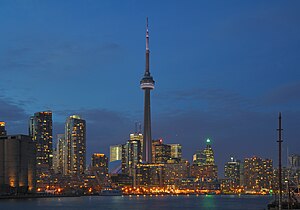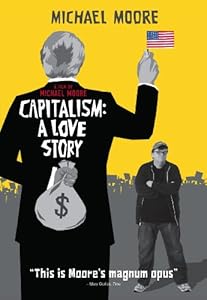Sometimes it is important to deliberately expose yourself to those who have radically different opinions so that you challenge the orthodoxy of your own thinking.
This was why I watched Michael Moore’s movie, Capitalism: A Love Story
Like a strange relationship, I had three stages in this movie.
- Rejection
- Curiosity
- Annoyance
But, it’s not how you think.
Rejection
As you might expect, for a long time, I’ve had pretty strong free-market views. As Moore started off his screed and railings against the evils of the Capitalist system, I found myself thinking how easy it was to dismiss him as a “Socialist” and or a “Limousine Liberal.”
Here’s a guy who is probably extraordinarily wealthy because of the very system he hates.
He kept talking about “the rich” and “they” as if there was a mysterious conspiracy.
Curiosity
As the movie went on, however, I started to think, “you know, he does have some pretty good points here. There are some really bad excesses of the system.”
And he began to document that, in fact, “the Rich” were doing things that well, maybe, are just not so democratic.
The final straw for me was his analysis of the TARP bailout, something that never sat well with me. My belief in capitalism was, “if you try something and it works, you should get the reward, but if you fail, it’s on you.”
When the banks failed, it wasn’t on them, their execs, or their shareholders, it was on the taxpayers. That bothered me a lot and Moore touched that nerve.
I left that section feeling a greater sense of awareness about some of the inequalities of the sytems.
Annoyance
As the movie wound down, the overwhelming feeling I had was one of Annoyance. Maybe sadness actually, because the impression I got across the board was that Americans, at least those in his film, didn’t have a sense of individual responsibility anymore.
The banks, the execs, etc. who asked for a bailout, certainly. But, also, Moore in his efforts to talk about how evil the capitalist system is documented people who were evicted from their homes after 20, 30, 40 years. Sad, of course, but he never tells us how or why these people got into those situations.
It’s easy to blame predatory lenders and slick marketing, etc., but when all is said and done, if you re-finance your home to “tap your home equity” and then you can’t make the payments, well…whose fault is that?
The other part that annoyed me is that he doesn’t really offer any solutions. Maybe that’s not his objective, but he says, “I don’t believe in Capitalism. I believe in Democracy.” That’s great, but HOW do we get there?
What should we do?
Sure, Europe and Japan created these idyllic social welfare states to which he points as a success, but his timeframe is too narrow. They are falling apart now.
I’m open to a better way, but he doesn’t give me the answer.
The Power of Narrative
There’s no doubt he’s a great storyteller and he conveniently uses the facts he wants to support his thesis.
Frankly, I think he could have gotten the job done without all of the Bush-bashing (predictable) and the Obama as Messiah crap (also predictable).
The Future
I think he makes some good points. Some things do have to change in the way our country is run, but his nostalgic view of the past is overly romanticized and he doesn’t even touch on the how the whole country needs to reinvent itself in the face of globalization.
Still, I’m glad I watched the movie and would recommend it.




















 For many, this is 2nd nature, but I’ve had enough conversations recently that made me think it was worth it to share these thoughts.
For many, this is 2nd nature, but I’ve had enough conversations recently that made me think it was worth it to share these thoughts.











